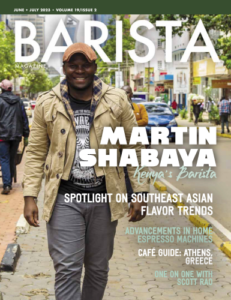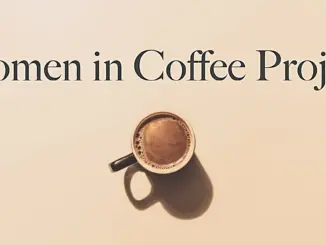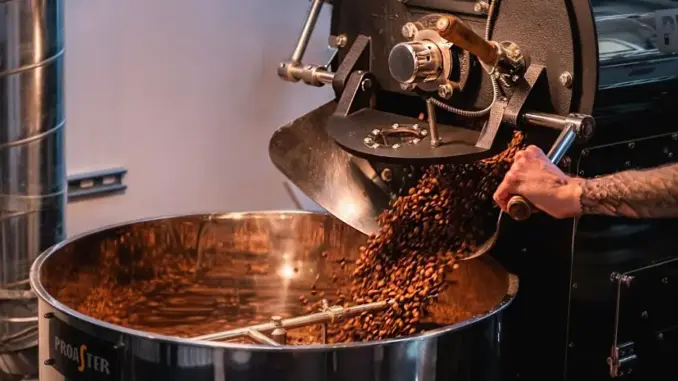
We talk to Mike Nelson from Portland, Ore.-based Junior’s Roasted Coffee about their new Cost of Production Covered Template, an open-source pricing resource for the specialty-coffee industry.
BY CHRIS RYAN
BARISTA MAGAZINE ONLINE
Photos courtesy of Junior’s Roasted Coffee
The Portland, Ore.-based coffee-roasting company Junior’s Roasted Coffee—founded in 2014 by Caryn and Mike Nelson with business partners Toby Roberts and Carrie Lind—has made it a tenet of its business to foster discussion on how much green-coffee buyers pay producers for their coffee, and to make that price appropriate throughout the specialty-coffee industry.
Junior’s, which operates three cafés in Portland, launched the Cost of Production Covered Project in 2018 to collaborate with producers and importers to build the cost of production into their purchasing contracts. In the ensuing years, they’ve launched a comic book and convened panels on the topic to raise awareness about coffee prices and cost of production with their customers and the broader coffee industry.
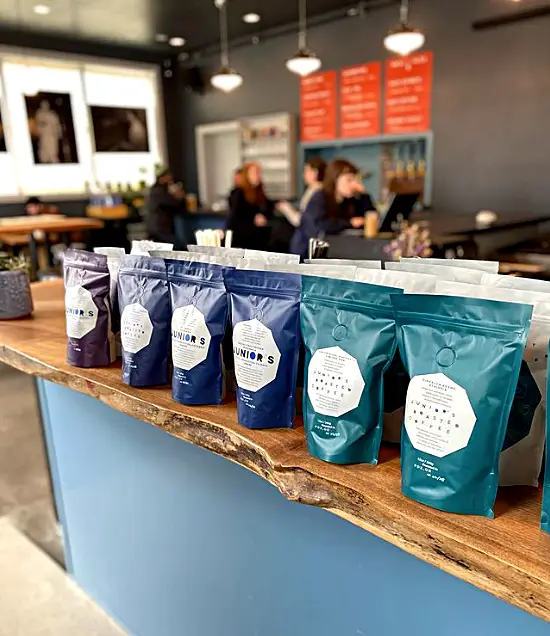
A New Tool for the Industry
Now, they’ve introduced a new resource: the Cost of Production Covered Template, a tool for coffee buyers to create green-coffee contracts that take coffee producers and their businesses into account—and pay them appropriately. The template includes a questionnaire that gathers a farm’s direct expenses related to producing one pound of green coffee, and a spreadsheet that organizes and calculates this data into a price and margin on which to base a coffee contract. Junior’s is offering the template for free on its website now.
“The price transparency provided by the template ensures a gross margin is reached for producers,” says Mike Nelson, co-owner and green buyer at Junior’s Roasted Coffee, in a press release. “As a green-coffee-buying company, we have the power to dig deeper into what a ‘farm partnership’ can look like, and into what questioning and advancing equity and ethics could do for our businesses, and hopefully the industry.”
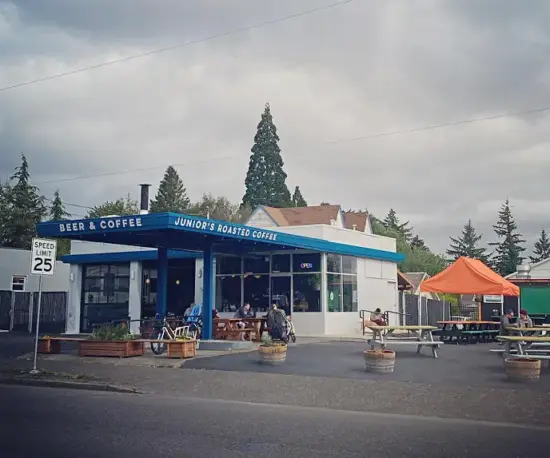
Template Pilot Program
After launching the Cost of Production Covered Project in 2018, Junior’s piloted the program and its corresponding template with five coffee producer relationships in Guatemala, Brazil, and Colombia, with the goal of eventually making the template available for use by other roasting companies.
The pilots provided Junior’s with valuable feedback, through which the roasting company condensed the questionnaire and fine-tuned the language, among other tweaks. “The first few years involved back and forth pertaining to question clarification and verbiage,” Mike says in an interview with Barista Magazine Online. “We want the questions to be as clear as possible so that participants are able to focus on the accuracy of the data gathered.”
Gaining Perspective
Mike says the five years of the Cost of Production Covered Project have offered several valuable lessons, including illustrating that producers around the world have different costs. Thus, using a tool like the template to take each unique situation into account is essential.
“What we’ve found so far is that producers’ costs all vary, and even if a farm gate or free on board (FOB) price by an importer seems ‘high enough,’ it might not necessarily cover the cost of production or the gross margin on those costs,” Mike says. “On a few occasions we’ve found that the prices paid by the importer more than covered a 30% gross margin on the cost of production, which helped validate why we work with these importers in the first place.”
The project has also helped Junior’s identify the ultimate importance of transparency and knowing a producers’ costs. “If we don’t know what the cost of production is, high prices won’t guarantee producer profit,” Mike says. “We’ve been hearing for years that buyers need to pay more for coffee, but cost of production, not quality, tells us the real reason why. I think that the template can help identify value and a price that will ensure that the farm business receives gross margin on those costs.”
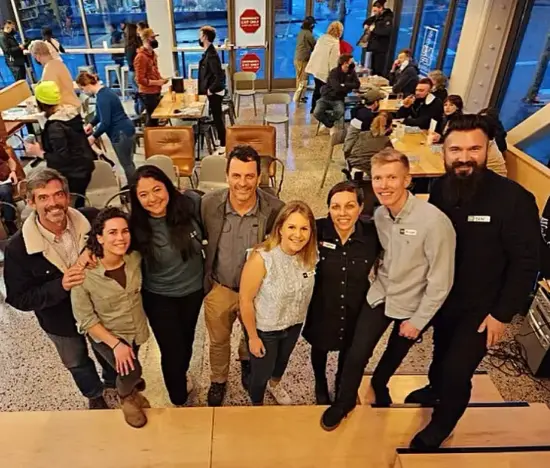
A Welcome Addition
Since Junior’s has released the Cost of Production Covered Template, Mike says that feedback has been positive throughout the industry, including from producers. “Feedback from coffee producers has been supportive since we first started the project,” he says. “Basing contract prices on something real acknowledges the very real reality of coffee producer business. If roasters value their producer partnerships, they should be concerned with their coffee vendors’ businesses succeeding.”
Mike says feedback from coffee buyers has been similarly positive; he recommends that buyers looking to integrate the template start small to see the tool’s effect. “We recommend buyers start with a single farm that they have close contact with,” he says. “This can either be direct contact or facilitated by/through an importer. We want buyers to try out the template, see how it works for their partnerships, and build on it from there.”
He adds, “It’s been less than two months since we started talking with roasters and importers about the new template, but we’re hoping to see folks use the template for upcoming harvests!”
To check out the Cost of Production Covered Template and explore how to apply it to your business, head here.
READ THE LATEST BARISTA MAGAZINE
Out now: It’s the June + July 2023 issue of Barista Magazine featuring Martin Shabaya of Kenya on the cover. Read it for free with our digital edition. Get your Barista Magazine delivered; start a subscription today! Visit our online store to renew your subscription or order back issues.

